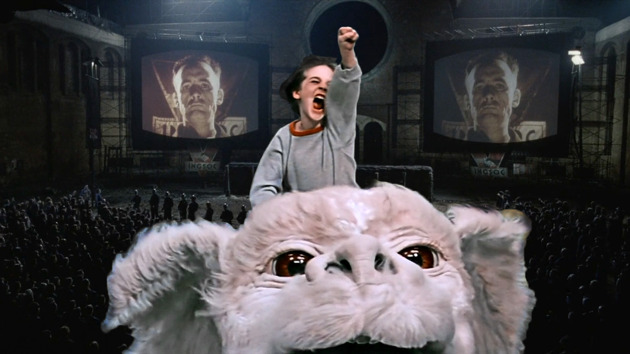A video essay by Peet Gelderblom
Orwell told us to brace ourselves for 1984: a totalitarian state would reduce us to slaves. 1984 actually turned out to be one of the most carefree years ever. Why this denial? Why are dystopias much more in vogue these days? Peet Gelderblom’s essay uses humour to make you think.
Orwell told us to brace ourselves for the year 1984. A totalitarian state would reduce mankind to slaves. Big Brother would be watching us non-stop. No freedom, no rights, no privacy. The actual year 1984 was a bit different. In fact, it turned out to be one of the most carefree years in human history. Hollywood had no interest in dystopian prophecies in the 80s. Audiences preferred to look the other way and lined up en masse for escapism, fantasy and nostalgic romance, blind to the dark future that awaited. In the eye of the storm, between the wagging finger of the past and our current cynical era, 1984’s main concern was seeing things through bright pink glasses.
Was there a reason for this mass denial or was the world actually on the verge of utopia? Why does it seem like dystopias are so much more in vogue these days? And why is it that where dystopian fiction used to incite rebellion, these days it feels more like confirmation? Peet Gelderblom’s brand-new video essay makes you think whilst adding humour. Join the filmmaker in conversation afterwards.


